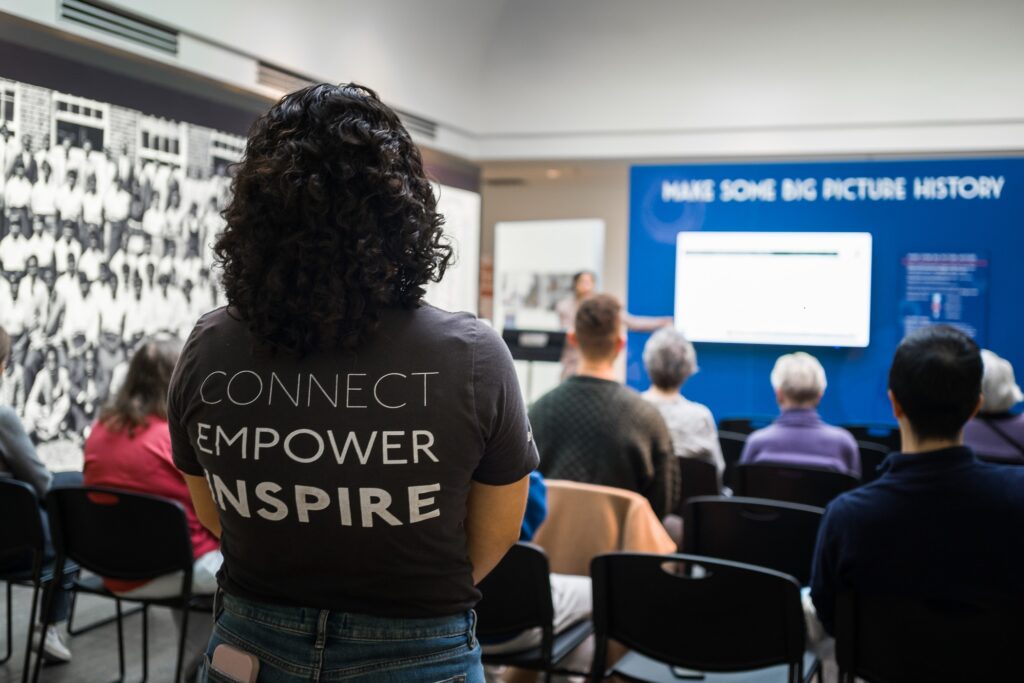
We are witnessing a national backlash against the Justice, Equity, Diversity, and Inclusion movement, particularly in educational settings. Trainings are coming to a stop, expert professionals are losing their jobs, and books are being yanked from library shelves. It’s impossible to view these developments as anything other than an appalling reversal of hard-earned gains.
In Washington, DC, we have been spared these developments, and while the DC History Center is a small (but mighty!) nonprofit with limited resources, we have committed to staying the course and institutionalizing these lessons learned for the long-term.
In our annual JEDI newsletter, my colleagues share examples of how this commitment has shown up in their work. It strikes me that each of these shifts took time, and that we are now seeing the results of promises made in some cases, three years ago, in the thick of the pandemic. This is especially true of Autumn’s discussion of our collections gaps analysis (see part I and part II) and Mariana’s longstanding involvement with the Black Broad Branch Project.
As the executive director, I am also sensitive to how our values show up in the budget, whether it is in how we raise funds or how we expend them. As Sajel explains, our membership program, refreshed and updated, is also newly accessible, starting with a $20 level. Maren tackles our honorarium policy, which seeks to honor the extraordinary expertise all of our speakers contribute to our public programs.
Institutional change is hardly ever smooth. There are fits and starts, and sometimes we get something flat-out wrong. This annual newsletter reflects our incremental progress as well as those lessons learned, and we appreciate the chance to share these insights with you—with honesty and transparency. And we will be back next summer, with another update, because we will keep moving forward.